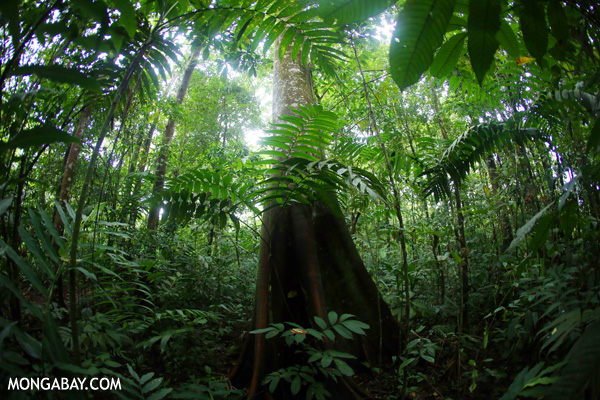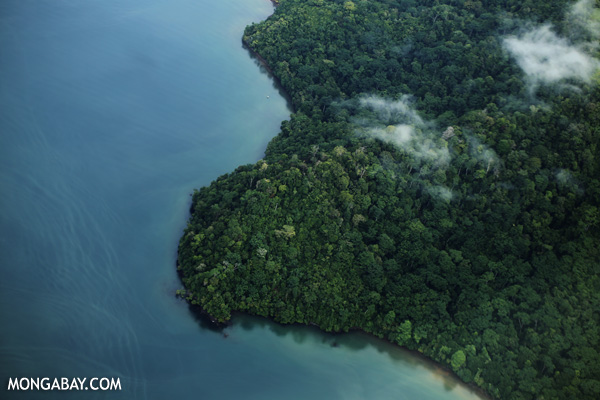Economists find that protected areas reduce poverty in Costa Rica
A new study has quantified a point long advocated by advocates of setting aside protected areas: ecotourism pays.
The research, published in Proceedings of the National Academy of Sciences (PNAS), finds that communities neighboring conservation areas in Costa Rica had lower rates of poverty relative to other areas. The authors — economists Paul J. Ferraro of Georgia State University and Merlin M. Hanauer of Sonoma State University — attribute most of the benefit to opportunities afforded by tourism.
“Although protected areas reduced deforestation and increased regrowth, these land cover changes neither reduced nor exacerbated poverty, on average,” the authors write. “Our analysis suggests that nearly two-thirds of the poverty reduction associated with the establishment of Costa Rican protected areas is causally attributable to tourism.”

Costa Rican rainforest
While the findings may be interesting for conservation managers and advocates, there are still considerable unknowns. For example, the Ferraro and Hanauer don’t speculate on the precise mechanisms by which ecotourism reduces poverty in the Central American country, other than “market channels”, since Costa Rica doesn’t have a formal revenue sharing system — like Madagascar — for local communities. They also caution not to draw wider conclusions about the study, which was limited to only one country famous for its ecotourism industry.
“Costa Rica is a country renowned for its public and private ecotourism investments,” they write. “Thus, one should be cautious about extrapolating our results to other countries.”
“Furthermore, we do not claim that our study is the last word on estimating causal mechanism effects, for protected areas or any other conservation initiative. To truly understand the mechanisms through which ecosystem conservation policies affect poverty, we need to build the evidence base on a policy-by-policy and country-by-country (or region-by-region) basis.”

The Osa Peninsula in Costa Rica. Photos by Rhett A. Butler